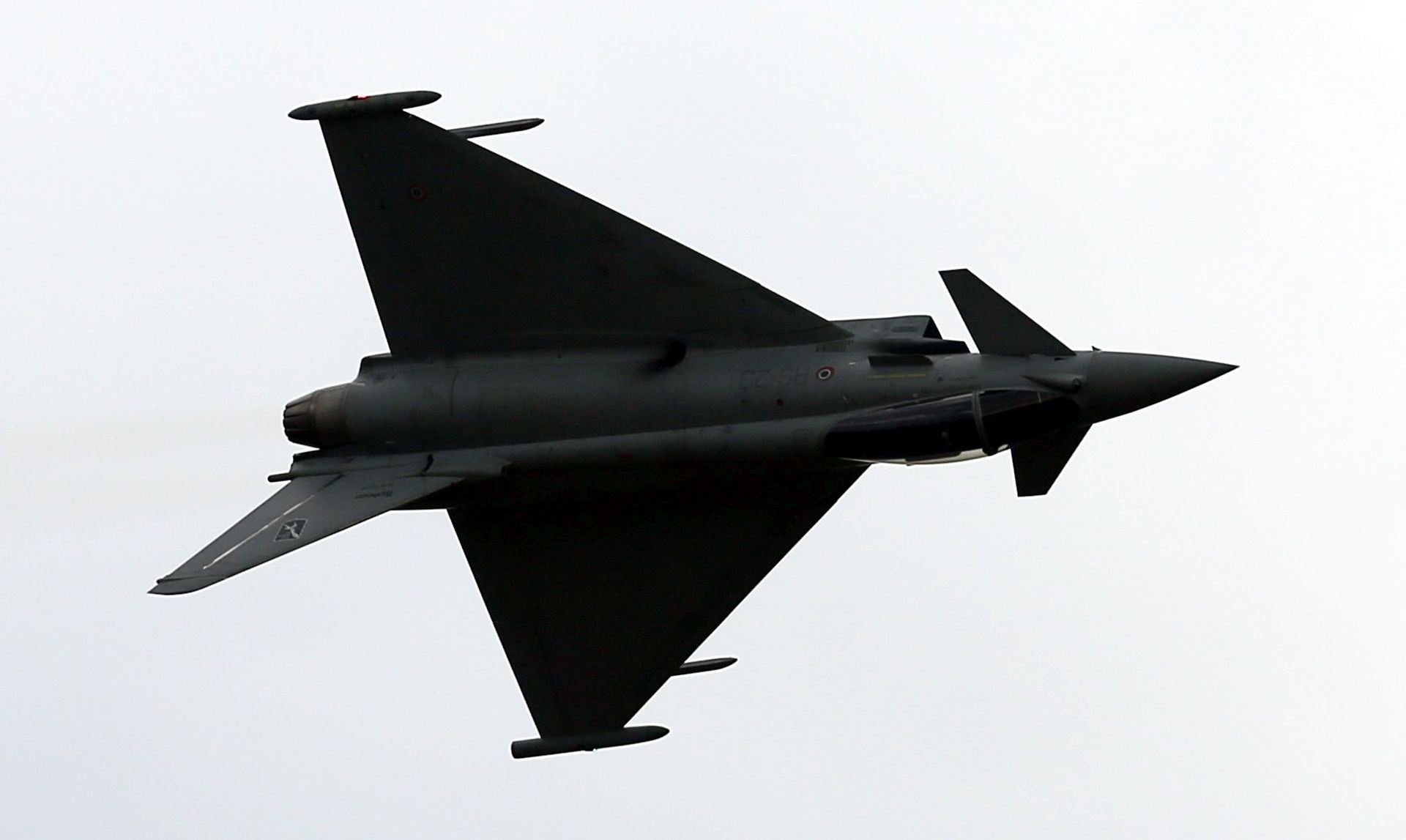London’s High Court on Tuesday examined the legality of a decision by the UK to renew sales of arms to Saudi Arabia that could be used in the war in Yemen.
The case has been brought by UK-based NGO, Campaign Against Arms Trade (CAAT), which accuses the government of contributing to breaches of international law and the world’s largest humanitarian disaster, which has claimed tens of thousands of lives.
The judicial review is expected to last until the end of the week.
Around 10 demonstrators stood outside the court Tuesday morning and hung a banner on the gates saying “Stop arming Saudi Arabia” and “Solidarity with Yemen”.
Riyadh has intervened militarily in Yemen since 2015, leading a regional coalition supporting pro-government forces opposed to the Iran-backed Houthi rebels.
Ben Jaffey, CAAT’s lawyer, told the court the UK government should have identified the coalition’s repeated bombings of civilians and other non-military targets as violations of international law, breaching rules on arms sales.
The NGO launched the legal challenge after Britain announced in summer 2020 it was resuming arms sales to Saudi Arabia, saying there was no clear risk that weapons would be used in a serious violation of international humanitarian law.
The UK government acknowledged there had been “small breaches”, but called these “isolated cases”, CAAT’s lawyer Jaffey said, describing this as “absurd”.
He detailed numerous Saudi bombings aimed at civilians, included a Doctors without Borders (MSF) hospital that killed about 10 people in 2016.
A single violation is enough for arms sales to come under question, Jaffey said.
James Eadie, the lawyer for the government, however, told the court there had been “very careful and detailed analysis of the incident of concern”.
“There was no irrationality in the way it has been done,” he said.
Ahead of the hearing, CAAT media coordinator Emily Apple accused the UK government of caring “more about profit than war crimes and the deaths of civilians”.
“These arms sales are unlawful and they should be stopped,” she told AFP.
The NGO initially won its case against the government in 2019, when the Court of Appeal ruled that the UK’s licensing of arms sales was unlawful.
It said the government had failed to assess properly whether the arms sales violated its commitments to human rights and ordered it to “reconsider the matter”.
‘Total impunity’
While serving as international trade minister, Liz Truss conducted a review and announced in 2020 that export licenses would restart.
She insisted Riyadh “has a genuine intent and the capacity to comply with IHL (international humanitarian law)”, despite “isolated incidents”.
CAAT accused Truss of “paying lip service” to the need to review sales.
It also said the UK government has licensed sales to Riyadh of weaponry including combat aircraft, guided bombs and missiles, with a published value since 2015 of 7.9 billion pounds ($9.8 billion).
It said the UK is one of the leading suppliers of arms to Saudi Arabia, along with the United States.
Martin Butcher, peace and conflict adviser at the charity Oxfam, said Saudi air strikes “are responsible for a larger proportion of the attacks” on civilians in Yemen.
“It’s essential that the legality of UK arms sales is examined and arms sales must be immediately stopped.”
In 2021 charities criticised the British government for slashing in half its humanitarian aid to war-torn Yemen.
The UK government says Britain is the world’s second largest defence exporter behind the United States. The sector had a turnover of 25.3 billion pounds in 2020.











